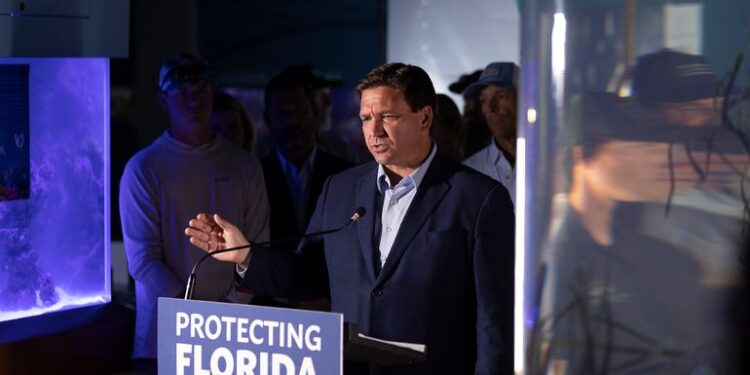Florida is likely to mandate the use of the federal E-Verify system for private employers with 25 or more employees. This bill is designed to prevent illegal immigration via citizenship workplace verification and is expected to be signed into law by Governor Ron DeSantis soon. The Senate bill 1718, which has been passed by Florida House, will require employers to verify the eligibility of their employees to legally work in the US via the E-Verify system. Non-compliance by employers can result in fines of $1,000 per day until compliance is achieved, while compliant employees may face termination under this new legislation. Additionally, random audits of employers suspected of hiring unauthorized immigrant workers will be permitted under this law once signed by the governor.
Why is E-Verify System Being Mandated?
Several other US states like North Carolina, South Carolina, Mississippi, Georgia, Alabama, Arizona, and Utah already require the use of E-Verify for private employers. The federal E-Verify system was initially created for verifying public employees’ immigration status. However, under the current system in Florida, private businesses can use E-Verify or I-9 documentation for their employees. The governor has argued that the I-9 documentation system used by businesses makes enforcement challenging, hence the E-Verify system will be a better option. However, this will significantly impact the industries that currently rely on the I-9 system.
What are the Impact on Private Companies Due to the Law?
The new law could greatly impact industries that currently rely on the I-9 system, according to Trent Cotney, partner and construction team leader for Adams and Reese LLP. He anticipates that this law will result in further segmentation of the industry with smaller subcontractor labor groups falling under the 25-employee limit to avoid compliance with E-Verify. The state’s construction industry, which already has a shortfall of workers, is likely to be the most affected. The current system of subcontracting in public contracts that require each worker to have an E-Verify certificate will change with this law.
How to Develop Leadership Skills?
In order to develop leadership skills, individuals can engage in activities such as mentoring, leadership programs or courses, and practicing leadership skills in their daily lives. Organizations can also support their leaders’ development by offering training and development opportunities and creating a culture of leadership.
What Makes a Good Leader?
A good leader should possess qualities like vision, effective communication skills, empathy, courage, and adaptability to change. A leader must have the ability to see beyond the immediate situation and have a clear idea of where they want to go. They should be able to connect with their followers on an emotional level, understand their challenges and struggles, and provide support and guidance when needed. Additionally, leaders should be willing to make tough decisions and take risks while being adaptable to change.
FAQ
Which states mandate E-Verify for private employers?
E-Verify is mandated for private employers with certain conditions in several US states including North Carolina, South Carolina, Mississippi, Georgia, Alabama, Arizona, and Utah.
What are the consequences of non-compliance under Florida’s new law?
Employers who fail to comply with the E-Verify system under this new law can be fined up to $1,000 per day. Compliant employees may face termination under this new legislation.
When will the new law in Florida come into effect?
If signed by Governor Ron DeSantis, this law will be in effect from July 1, 2021.
How can organizations develop their leaders?
Organizations can support their leaders’ development by offering training and development opportunities, creating a culture of leadership, identifying potential leaders, and supporting them to develop necessary skills.



